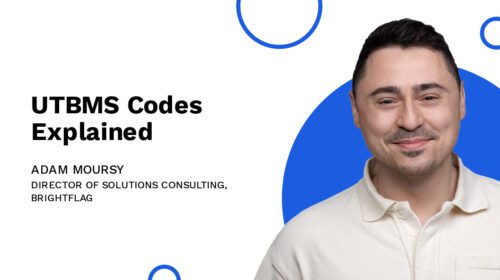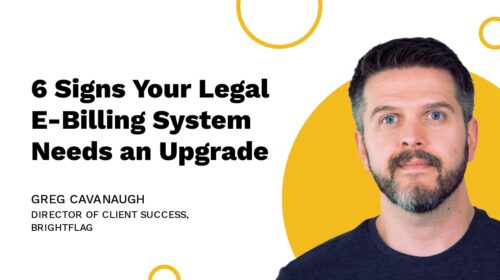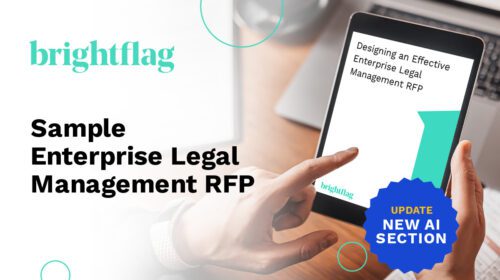How to Detect and Prevent Double Billing from Law Firms
Your outside counsel are valued partners and play an essential part in legal service delivery to your business. But they are also busy managing matters for several clients throughout their workday. Not all of them have the best billing hygiene. This means that double billing can happen.
How do you keep it from hitting your bottom line?
By learning how double billing from law firms happens and working to prevent it, legal ops professionals can save their organizations money, ease friction between in-house legal teams and outside counsel, and establish standards for good billing practices.
What Is Double Billing?
Double billing in a legal setting is billing multiple clients for the same work, billing the same work to the same client on multiple matters, creating duplicate entries on a single invoice, or incorrectly resubmitting an invoice due to an administrative error.
Double billing is usually the result of an honest mistake. When it’s done intentionally the practice is considered unethical.
Poor billing practices often lead to double billing, such as bad habits around documenting time. Many timekeepers don’t complete their time entries in the law firm billing system at the end of every day. Instead, they bulk-add them at the end of the week, or even at the end of the month. In the interim, they may forget what work they’ve done for what matters and use vague or duplicative descriptions.
Another poor billing practice that can lead to overbilling is using .25 increments (15 minutes) versus .1 increments (6 minutes). By setting the time to larger increments, firms charge clients more for small tasks like emails.
That small difference (15 minutes instead of six minutes) can compound significantly over time. Let’s take an example where an associate sent 10 emails, spending about five minutes on each, and the client was billed at an hourly rate of $750.
- With a .25 increment, the firm would bill 10 items at the rate of $750 multiplied by .25, or $187.5, for a total of $1,875.
- With a .1 increment, the firm would bill 10 items at $750 multiplied by .1, or $75. The total for those items would be $750.
Double billing can be hard to detect if you are manually reviewing invoices. Duplicated line items on different invoices may slip through, or it might not be obvious that work on the invoice, such as research, should be considered firm overhead because it is shared across multiple clients.
What Are Common Examples of Double Billing?
Double billing can appear on your outside counsel’s invoices in a few different ways, but the practice always results in overbilling clients. Here are a few common examples of double billing.
- Billing different clients for the same work: Say an outside counsel researches a new regulation that affects two different clients. If a firm were to bill both clients for one hour of research, that would be double billing. Instead, the firm should consider basic research that impacts multiple clients as part of the firm’s overhead.
- Using travel time to work on matters for different clients: If a lawyer is traveling to take a deposition for client A and does two hours of research on a matter for client B while on the plane, the firm cannot bill both clients for those two hours. To avoid this, most clients specify that lawyers cannot bill for time spent traveling because it’s understood that they’ll use that time to bill for other work.
- Administrative errors that result in overbilling: Without the right technology, double billing can show up on invoices due to poor information management and human error. Outside counsel may submit a duplicative invoice because a rejected invoice wasn’t tagged correctly. Line items on invoices can be duplicated or incorrectly billed because of copy-and-paste errors. Different lawyers working on overlapping matters may accidentally bill the client twice for the same research or meeting.
What Are the Repercussions of Double Billing?
In most cases, your outside counsel acts ethically on your behalf. Systems like Brightflag can automatically detect double billing and if you consider it to be done in error, the invoice can simply be adjusted to remove double-billed lines. However, there will be client relationship issues and legal ramifications if double billing is found to be done repeatedly or fraudulently.
The American Bar Association sets the standard for how firms should approach billing. The ABA’s Model Rules for Professional Conduct outlines in Rule 1.5 that firms should only charge reasonable fees. That includes only charging for the work completed and not double billing clients.
The biggest repercussion of double billing for legal ops is the extra cost to you — in both time and money. Outside counsel spend is likely one of your largest budget line items, and no one wants to pay more than necessary.
If you catch repeated instances of double billing from your outside counsel, even after a conversation with the vendor, you lose trust in their ability to manage the details of the work. That lack of trust could then extend to work on the matters they handle for you. Your team will spend extra time reviewing invoices to make sure there aren’t any other instances of incorrect billing, taking time away from important work. You’ll spend time evaluating the relationship and possibly moving work away from that firm.
In addition to any action you take against an outside counsel that engages in double billing repeatedly or intentionally, law firms that double-bill clients may also face disciplinary action by their state bar association.
How Can I Minimize Double Billing?
There are two primary ways you can minimize double billing. First, create clear guidelines that delineate what is billable to help remove any confusion. Second, implement good legal billing software to eliminate manual reviews so you catch double billing before the invoice gets paid.
Create a Strong Set of Outside Counsel Guidelines
Clarity is the key to creating outside counsel guidelines that enforce good billing hygiene and address potential double billing scenarios. Codify your expectations: what is billable work, what should be done by a partner, and what should be done by an associate. Here are a few items you should highlight in your guidelines:
- Prohibit billing for research on basic issues or issues already known to the firm based on their expertise.
- Prohibit block billing and vague line descriptions with insufficient detail to assess what work was performed and whether the work is duplicative.
- Limit charges for intra-firm communication, research, and travel time.
Use Brightflag’s best practice set of outside counsel guidelines to review yours or to guide you as you create your own.
Automate Your Invoice Review With Legal Tech
Once your outside counsel guidelines are in place, you can implement them into a platform like Brightflag to identify invoices that don’t meet your standards — including double billing for legal services. A strong legal spend management program improves efficiency through automation and cost control by ensuring expenses are in line with expectations. It takes the manual work out of reviewing invoices and improves accuracy.
Brightflag catches duplicative entries, block billing, and lines with insufficient narrative detail. With AI invoice reviews, Brightflag automatically classifies invoice text into correct categories, speeding up the process even more.
Identifying instances of double billing and other billing errors before an invoice is paid helps you reduce spend, avoid uncomfortable invoice disputes, and prove good budget stewardship to your finance team.
Build Stronger Relationships Through Transparency
Your outside counsel relationships hinge on trust. That starts with clear outside counsel guidelines that make sure all parties are aligned on expectations, but it also spreads to your larger organization. With detailed spend management reporting, you can easily see how your budget is being spent and show your organizational leadership the value of legal ops.
Check out our Complete Legal Cost Control Checklist to help you examine every aspect of your legal spend management, including developing clear billing guidelines.



